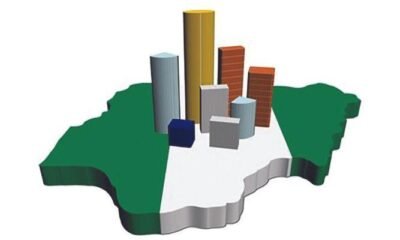Business
How Digital Technologies Are Affecting Nigerians –World Bank

Beyond rhetorics, have you sat to assess how digital technologies are affecting Nigerians and Nigeria?
Despite being a major beneficiary of World Bank initiatives and economic interventions, what many not know is how digital technologies are affecting Nigerians.
From the perspective of the World Bank, the impact has been profound, not only for Nigeria alone, but the whole of the developing region. be a far-reaching impact.
Axel van Trotsenburg. The Bank’s Senior Managing Director (SMD), first infers that without access to the internet and the skills to use digital technologies effectively, too many, unfortunately, are essentially locked out of the modern world.
Yet, a new digital era that is accessible to all holds the potential to shape a more inclusive, resilient, and sustainable world for generations to come.
They have dramatically changed the way we communicate with each other, how we conduct business, and our interaction with the environment, the policy expert says..
READ ALSO: Loan Apps: FG Approves 94 Companies As Digital Money [Full List]
The international community, he adds, has an unprecedented opportunity to help developing countries reap the benefits of digitalisation while mitigating the risks and ensuring that, working together, through accelerated investments and policy reforms, we can close the digital divide.
So, his inference as to digital technologies are affecting Nigerians, is positively.
“A new digital era that is accessible to all holds the potential to shape a more inclusive, resilient, and sustainable world for generations to come.
“The data is undeniable. When fast internet becomes available, people are 13 percent more likely to have a job and businesses can nearly quadruple their exports. Faster internet coverage also reduces extreme poverty”.
Citing Senegal and Nigeria, he declared that “3G coverage has been linked to declines in extreme poverty of 10 percent and 4.3 percent, respectively.
“At the same time, analytics and data-driven decision-making boost the sales of small and medium enterprises.
“Digital technologies also generate benefits for the planet—with the potential to reduce emissions by up to 20 percent by 2050 in the top three highest-emitting sectors—energy, materials, and transportation”.
Notwithstanding the gains that may have been made, digital progress has been uneven, exacerbating the gap between the digital haves and the have-nots.
READ ALSO: Why FG Is Slamming $10bn Fine On Crypto Company Binance
This is asserted to, by his realisation that one-third of the global population remains offline, a stark contrast to the 90 percent online in high-income countries.
“As businesses in advanced countries integrate artificial intelligence into their products and services, less than half of the businesses in many developing countries have a basic internet connection. And when they do have internet access, it’s often slow.
So as to How Digital Technologies Are Affecting Nigerians and other Africans in relation to their counterparts elsewhere, Axel van Trotsenburg inferred: “Broadband in wealthier countries is five to ten times faster than in low-income countries.
“These gaps in internet speed, data traffic, and digital use are hampering digital gains for individuals and firms in low- and middle-income countries”, in his article “The Digital Era For All”, as published in the World Bank blog.



























